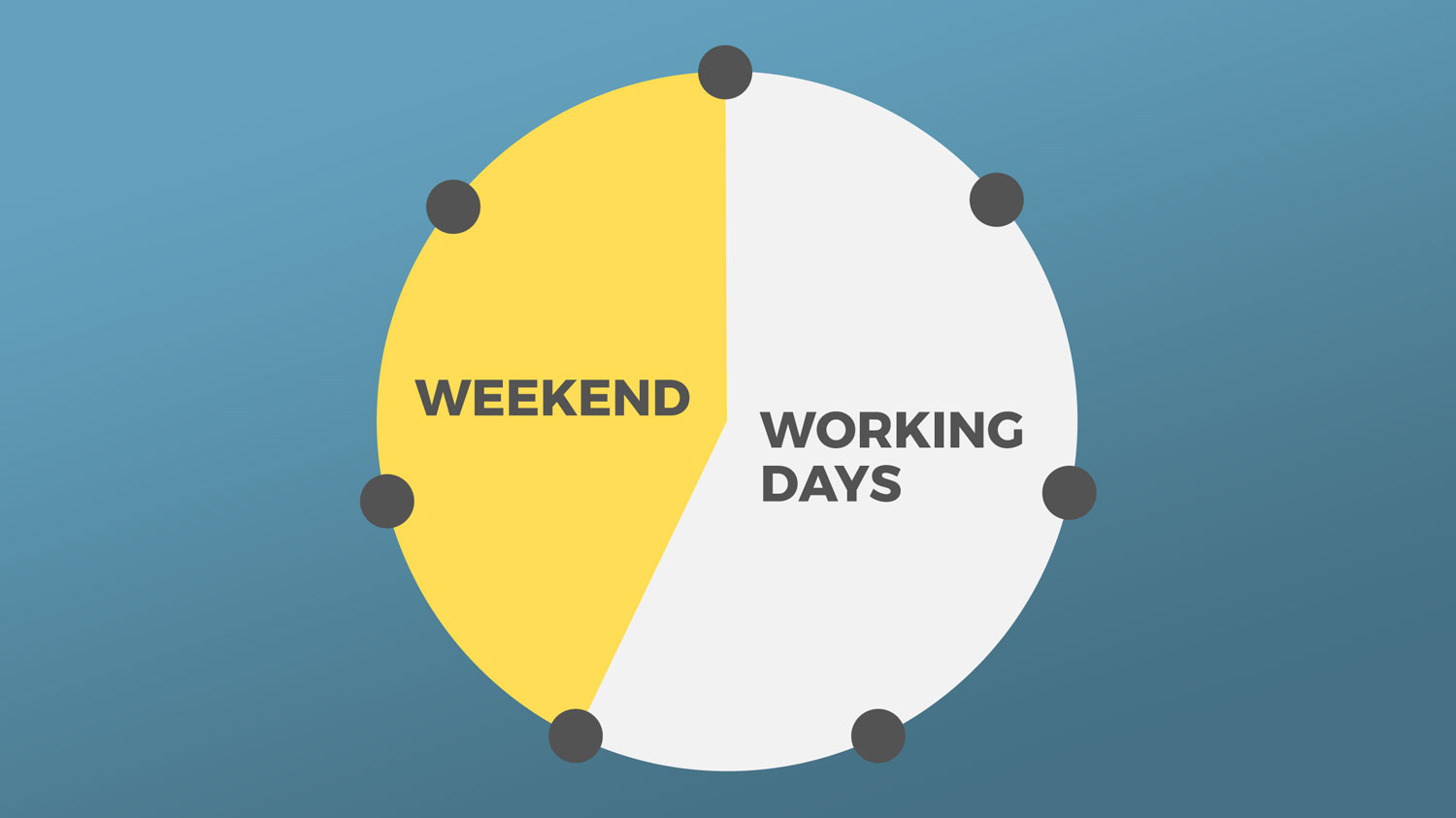Greece’s Six-Day Work Week: Economic Impact

Greece is one of the few countries in Europe that still has a six-day work week. This practice has been in place for many years, but its economic implications have been the subject of much debate.
The six-day work week has a number of potential economic benefits. First, it can lead to increased productivity. When workers have more time to work, they can produce more goods and services. This can lead to higher economic growth and a more prosperous economy. Second, the six-day work week can help to reduce unemployment. By creating more jobs, it can help to reduce the number of people who are unemployed. Third, the six-day work week can help to increase wages. When there is a shortage of workers, employers are often willing to pay higher wages to attract and retain workers.
However, the six-day work week also has a number of potential economic drawbacks. First, it can lead to decreased productivity. When workers are tired, they are less productive. This can lead to lower economic growth and a less prosperous economy. Second, the six-day work week can lead to increased absenteeism. When workers are tired, they are more likely to miss work. This can lead to lower productivity and a less efficient economy. Third, the six-day work week can lead to decreased job satisfaction. When workers have to work long hours, they are less likely to be satisfied with their jobs. This can lead to lower morale and a less productive workforce.
Overall, the economic impact of the six-day work week is complex and depends on a number of factors. However, there is some evidence to suggest that the six-day work week can have both positive and negative economic consequences.
Impact on Productivity
The six-day work week can have a significant impact on productivity. When workers have more time to work, they can produce more goods and services. However, there is a point of diminishing returns. After a certain number of hours, workers become tired and their productivity begins to decline.
A study by the University of California, Berkeley found that the average worker’s productivity begins to decline after working 50 hours per week. The study also found that workers who work more than 60 hours per week are significantly less productive than those who work fewer hours.
These findings suggest that the six-day work week may not be the most efficient way to maximize productivity. By working fewer hours, workers may be able to produce more goods and services in the long run.
Impact on Wages
The six-day work week can also have a significant impact on wages. When there is a shortage of workers, employers are often willing to pay higher wages to attract and retain workers. This can lead to higher wages for workers in industries that have a high demand for labor.
However, the six-day work week can also lead to lower wages for workers in industries that have a low demand for labor. This is because employers in these industries are less likely to be willing to pay higher wages to workers who are already working long hours.
Overall, the impact of the six-day work week on wages is complex and depends on a number of factors, including the demand for labor in the specific industry and the willingness of employers to pay higher wages.
Impact on Employment
The six-day work week can also have a significant impact on employment. By creating more jobs, it can help to reduce the number of people who are unemployed. However, the six-day work week can also lead to job losses in industries that are unable to compete with the higher wages offered by industries that have a high demand for labor.
Overall, the impact of the six-day work week on employment is complex and depends on a number of factors, including the demand for labor in the specific industry and the ability of businesses to adapt to the higher wages.
Social Implications of Greece’s Six-Day Work Week

The implementation of a six-day work week in Greece has had a profound impact on Greek society, significantly affecting work-life balance, family dynamics, and leisure time.
Impact on Work-Life Balance
The extended work week has encroached upon personal and family time, leaving employees with less opportunity for rest, recreation, and personal responsibilities. This imbalance has led to increased stress levels, burnout, and reduced productivity. Many workers struggle to find time for activities outside of work, such as spending time with loved ones, pursuing hobbies, or engaging in self-care.
Strain on Family Dynamics
The six-day work week has strained family relationships, as parents have less time to spend with their children and partners. Children may feel neglected or resentful as their parents are often absent or too exhausted to engage with them. Additionally, couples may face challenges in maintaining intimacy and connection due to the limited time they have together.
Reduced Leisure Time
The reduction in leisure time has diminished opportunities for individuals to pursue personal interests, hobbies, and social activities. This can lead to feelings of isolation, boredom, and dissatisfaction. Moreover, the lack of leisure time can hinder creativity, innovation, and personal growth.
Personal Anecdotes
* “I used to have time to play with my kids in the evenings, but now I’m too tired by the time I get home,” said Maria, a working mother.
* “My husband and I rarely have time for date nights anymore. We’re both so exhausted from work,” shared Eleni, a young professional.
* “I miss the days when I could go for a run or read a book after work. Now I barely have time to sleep,” lamented Giorgos, a software engineer.
These personal anecdotes illustrate the significant social consequences of Greece’s six-day work week, highlighting the challenges and sacrifices faced by individuals and families.
Alternatives to Greece’s Six-Day Work Week: Greece Six Day Working Week

Greece six day working week – The six-day work week in Greece has been a subject of debate due to its potential impact on employee well-being and productivity. Several alternative work schedules have been proposed as potential solutions, each with its own advantages and disadvantages.
Four-Day Work Week
The four-day work week involves working four days per week, typically for longer hours than in a traditional five-day work week. This schedule can provide employees with a three-day weekend, offering increased flexibility and work-life balance.
Benefits:
- Improved employee well-being and reduced stress
- Increased productivity due to fewer distractions and a more focused workforce
- Lower absenteeism and presenteeism
Drawbacks:
- May not be feasible for all industries or roles
- Can lead to increased overtime costs if employees are required to work longer hours on the four days
- May require additional staffing to cover the same amount of work
Flexible Working Hours, Greece six day working week
Flexible working hours allow employees to choose their own work hours within a certain time frame. This can provide employees with greater control over their work-life balance and accommodate personal responsibilities.
Benefits:
- Increased employee satisfaction and motivation
- Improved work-life balance
- Reduced absenteeism and presenteeism
Drawbacks:
- Can be challenging to manage and coordinate
- May lead to communication difficulties if employees are working different hours
- Can create inequities between employees who work different schedules
Table Comparing Different Work Schedules
The following table compares the four-day work week, flexible working hours, and the traditional five-day work week based on productivity, employee satisfaction, and economic feasibility:
| Work Schedule | Productivity | Employee Satisfaction | Economic Feasibility |
|---|---|---|---|
| Four-Day Work Week | Moderate to High | High | Low to Moderate |
| Flexible Working Hours | Moderate | High | Moderate |
| Five-Day Work Week | High | Moderate | High |
In Greece, the six-day workweek has been a topic of debate for years. Some argue that it is necessary to boost the economy, while others believe it is detrimental to workers’ health and well-being. Meanwhile, in the world of fashion, Saks Fifth Avenue is in talks to acquire Neiman Marcus, a move that would create a luxury retail powerhouse.
Back in Greece, the six-day workweek remains a contentious issue, with no easy solution in sight.
The news of Greece’s six-day working week has sparked a flurry of discussions. While some argue its benefits, others raise concerns about work-life balance. In the midst of this debate, it’s worth noting the recent Neiman Marcus press release , which highlights the company’s commitment to employee well-being.
As Greece grapples with the implications of its new work schedule, it would be prudent to consider the lessons learned from Neiman Marcus’s focus on employee satisfaction and work-life balance.